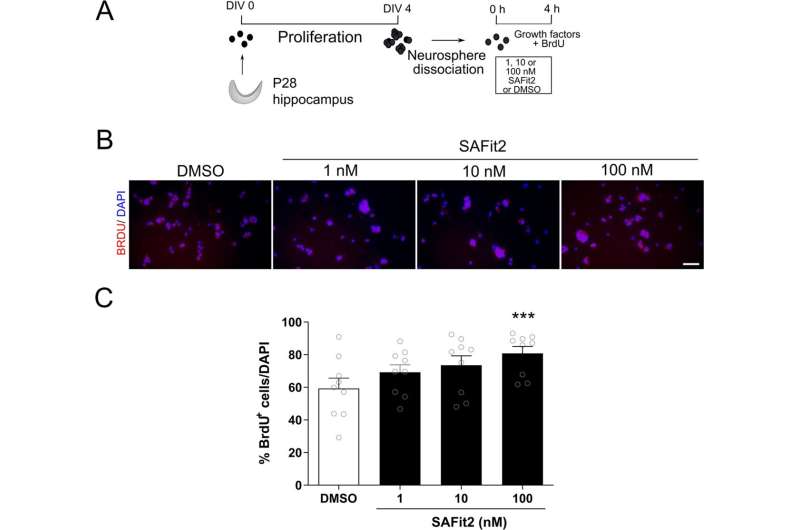Researchers unlock breakthrough discovery to increase resilience to stress

Neuroscientists at APC Microbiome Ireland, a world-leading SFI research center based at University College Cork (UCC), have discovered a new therapy to enhance resilience to stress. The findings will help researchers to better understand and treat stress to reduce its long-term effects on mental health.
Experiencing occasional stress is a normal part of life. However, people who experience chronic or severe stress have intense, persistent and excessive worry about everyday situations. Such chronic stress can increase susceptibility to developing stress-related anxiety disorders and depression, leading causes of morbidity and mortality. A recent breakthrough by UCC researchers has shown that a drug suppressing the activity of a protein called FKBP51 increases resilience to chronic stress.
The research is published Molecular Psychiatry, a journal on biological psychiatry.
The researchers found that that chronic treatment with this drug prevented stress-related social withdrawal and reduced stress-induced anxiety. When the drug was directly applied to cells from the hippocampus, a brain area involved the regulation of anxiety, mood and memory, it could enhance and support their growth.
Dr. Olivia O'Leary, Senior Lecturer in the Dept of Anatomy and Neuroscience, UCC and Funded Investigator in APC Microbiome Ireland, said: "Chronic stress repeatedly triggers the fight-or-flight response leading to a risk of health problems. Our data positions FKBP51 as an important target for the development of new drugs in the treatment of stress-related brain disorders where there is still such an unmet medical need."
Professor John Cryan, Vice President for Research & Innovation UCC and Principal Investigator in the APC Microbiome Ireland, said: "Our research presents a significant step forward. Up to 30% of people with depression, a stress-related psychiatric disorder, remain nonresponsive or poorly responsive to available antidepressant treatments. There is a pressing need for more effective treatments that have a different mode of action to currently available treatments."
The study was conducted by Dr. Martin Codagnone, a postdoctoral researcher working with Dr. O'Leary and Professor Cryan.
More information: Martin G. Codagnone et al, Inhibition of FKBP51 induces stress resilience and alters hippocampal neurogenesis, Molecular Psychiatry (2022). DOI: 10.1038/s41380-022-01755-9




















